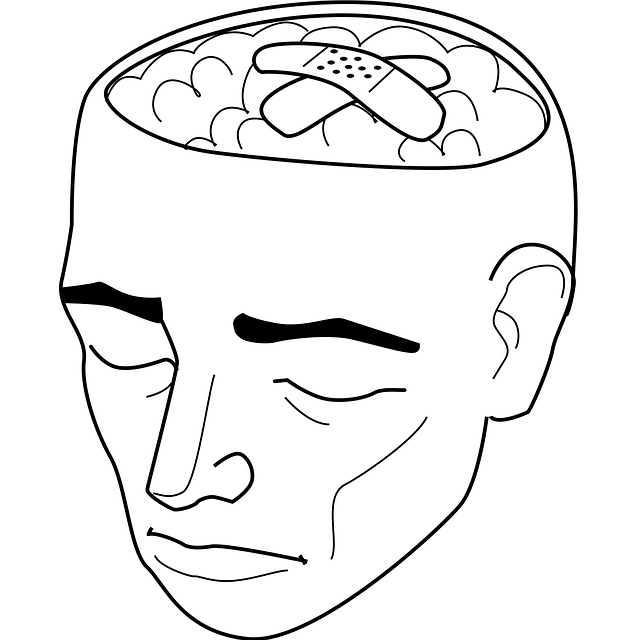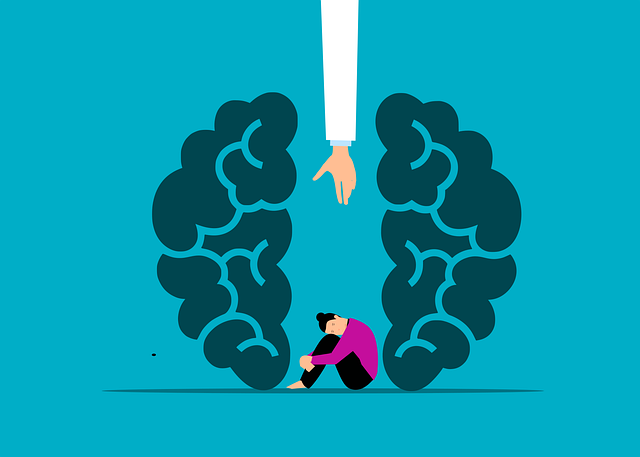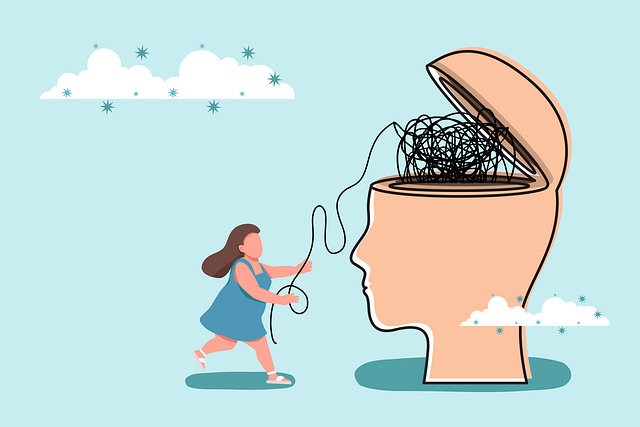Understanding Mental Health Data involves collecting and preparing information from diverse sources like electronic health records, wearable devices, and online therapy platforms offering Therapy for Young Adults. Cognitive Behavioral Therapy (CBT), an evidence-based approach focusing on changing negative thought patterns, is widely used. Effective data preparation techniques are vital to ensure consistency, accuracy, remove duplicates, and address privacy concerns. Analyzing CBT data provides insights into emotional well-being, enabling personalized recommendations for stress reduction and mood management among young adults. This data-driven approach aims to prevent depression and build mental resilience through tailored interventions like CBT, mindfulness training, and stress management techniques.
Mental health data analysis is a crucial step in understanding and addressing the complex needs of young adults. This article explores the power of cognitive behavioral therapy (CBT) techniques in interpreting mental health data, offering valuable insights for designing effective interventions. We delve into the process of collecting and preparing data while highlighting CBT’s role in identifying patterns and guiding therapeutic strategies specifically tailored to young adults’ unique challenges. By leveraging data analysis, professionals can provide more targeted therapy for this vulnerable population.
- Understanding Mental Health Data: Collection and Preparation
- Applying Cognitive Behavioral Therapy (CBT) Techniques in Data Analysis
- Interpreting Results and Designing Effective Interventions for Young Adults
Understanding Mental Health Data: Collection and Preparation

Understanding Mental Health Data involves a meticulous process of collection and preparation to ensure accurate analysis. In today’s digital age, data related to mental health can be gathered from various sources, including electronic health records, wearable devices, and online platforms offering therapy for young adults. Cognitive Behavioral Therapy (CBT) is one such evidence-based approach that has seen significant adoption in these platforms, focusing on identifying and changing negative thought patterns and behaviors contributing to stress and burnout prevention.
Effective data preparation includes cleaning and normalizing the collected information, ensuring consistency and accuracy. This step is crucial for removing any irrelevant or duplicate data points and addressing privacy concerns. By implementing robust data preparation techniques, mental health professionals can gain valuable insights into individuals’ emotional well-being, leading to more personalized recommendations for stress reduction methods and mood management strategies.
Applying Cognitive Behavioral Therapy (CBT) Techniques in Data Analysis

Applying Cognitive Behavioral Therapy (CBT) techniques to mental health data analysis offers a powerful approach for understanding and addressing psychological issues, particularly among young adults. CBT focuses on identifying and modifying negative thought patterns and behaviors, making it a valuable tool in deciphering complex datasets related to mental wellness. By analyzing trends and correlations within the data, researchers and therapists can pinpoint specific triggers and factors contributing to conditions like depression or stress.
This therapeutic approach facilitates the development of effective interventions, such as tailored Mental Wellness Coaching Programs, aimed at empowering individuals to manage their mental health proactively. Moreover, CBT techniques can enhance Depression Prevention strategies by teaching young adults coping mechanisms that promote resilience. Stress Management is another area where CBT shines, helping individuals recognize and change stressful thought processes, ultimately leading to improved overall mental wellness.
Interpreting Results and Designing Effective Interventions for Young Adults

Interpreting results from mental health data is a delicate process that requires both technical expertise and empathy. For young adults, this involves tailoring interventions to meet their unique needs. Cognitive Behavioral Therapy (CBT), for instance, has shown significant promise in treating common mental health issues like depression among this demographic. By analyzing participant data from therapy sessions, researchers can identify patterns and gain insights into what works best for different individuals.
This data-driven approach enables the design of targeted interventions that go beyond one-size-fits-all solutions. Incorporating techniques like mindfulness training or stress management strategies, as showcased in various mental wellness podcast series productions, alongside CBT can promote emotional well-being. Ultimately, the goal is to prevent depression and foster a sense of mental resilience in young adults, ensuring they have the tools to navigate life’s challenges effectively.
Mental health data analysis is a powerful tool for understanding and improving the lives of young adults. By combining techniques like Cognitive Behavioral Therapy (CBT) with robust data interpretation, we can design effective interventions tailored to this demographic. This approach ensures that therapy reaches those who need it most, fostering better mental well-being in our communities. Integrating data analysis into mental health care is a game-changer, particularly for young adults, offering hope and improved outcomes through evidence-based strategies.








